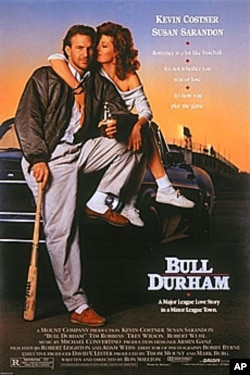Actress Susan Sarandon never has shied away from a challenge. She's played a witch, nun, dying mother, drunken grandmother, a fugitive and even herself on the television show, "The Simpsons."
There's another role that she's taken on for decades and has no plans to give up: activist. The 64-year-old has said that at the root of both acting and activism is imagination. She's able to imagine herself in someone else's shoes - and wants to use her fame to help them.
Early years
Susan Sarandon - the activist - arrived on center stage before the actress. The former Susan Tomalin was studying drama at The Catholic University of America in Washington, D.C. at the start of a turbulent era.
"You know, I just came of age at a time when, if you had any brain at all, the end of 60s, beginning of the 70s, they stopped, we stopped a war. You had sex drugs and rock and roll but you were also in the streets and it made a difference," she says. "There's no one else in my family that has this problem. I'm the only one."
Sarandon grew up the eldest of nine children, sleeping in bunk beds in a crowded but happy house in Edison, New Jersey. Her father was a big band singer before becoming an advertising executive, and was often belting out tunes. She was barred from singing due to a voice that her father deemed terrible. Yet in 1975, in one of her first big roles, Sarandon acted and sang as Janet, a good girl gone bad, in "The Rocky Horror Picture Show."
Gaining ground
Sarandon kept honing her craft, becoming an art-house favorite. Louis Malle's "Atlantic City" in 1980 earned her an Academy Award nomination. At that point, her marriage to her college sweetheart, Chris Sarandon, had ended but she kept his surname.
In the mid-80s, she had a daughter with an Italian director and was living in Rome. After reading a script that captivated her, she decided to fly to the U.S. at her own expense to fight for the role. Paul Zinder, associate professor of the American University of Rome, says that ended up being the movie that catapulted Sarandon into the major leagues.
"If you're to look at Sarandon's kind of coming out party, it was Bull Durham in 1988," says Zinder.
In the film, Sarandon plays an English teacher and baseball devotee who selects a minor-league player each year to seduce and educate about poetry, baseball and life.
"What was unique about Sarandon's role in that film is that she is, first of all, non-conventional looking for a Hollywood sex goddess, so to speak," says Zinder. "However, her confidence was quite clear to everyone who watched that film and really her comedic gifts as well related directly to her sexual confidence."
Hollywood directors noticed, putting her among the A-list actresses.
Functional fame
Sarandon realized her fame could serve another function.
"After I became a celebrity, it just seemed to make so much sense to be able to use my celebrity to get press to go somewhere where they weren't going to cover the early days of AIDs, for instance, or sex trafficking."
Sarandon is a passionate advocate for human rights, social justice and programs dedicated to ending poverty and hunger. A staunch liberal who opposes the death penalty, she saw her art and activism meet in the 1995 film "Dead Man Walking." She won an Academy Award for her portrayal of a nun who counsels a death-row inmate.
This fall, she accepted a new challenge from the United Nations' Food and Agriculture Association. Director-General Jacques Diouf invited her to help feed the world's one billion hungry people.
In her UN role, Sarandon has addressed diplomats and aid workers from every corner of the globe. Her knowledge of the issues rivals the experts. Yet she also brings humanity to her mission.
"As a mother, I can't imagine anything more upsetting, demoralizing, frustrating than not being able to feed your child."
Art and activism
The head of the US mission to the UN agencies in Rome - Ambassador Ertharin Cousin - is thrilled to have Sarandon on board, knowing she'll help put hunger in the headlines.
"The biggest challenge we have today is not the work that we're doing but maintaining the public will to continue that work. So having someone with her fame who is willing to lend that fame not just for her own benefit but for those hungry people around the world, we are delighted and very excited about this opportunity," says Cousin. "But what was so exciting for me was that underneath all of those characters that I've so enjoyed watching in the movies is a real person who cares."
Sarandon shows no signs of slowing down with her art or activism. She still gets acting work - probably due to her willingness to embrace her age and return to her roots in independent films and television. It's the 1960s rebel in her, always seeking meaning in her life and work.






